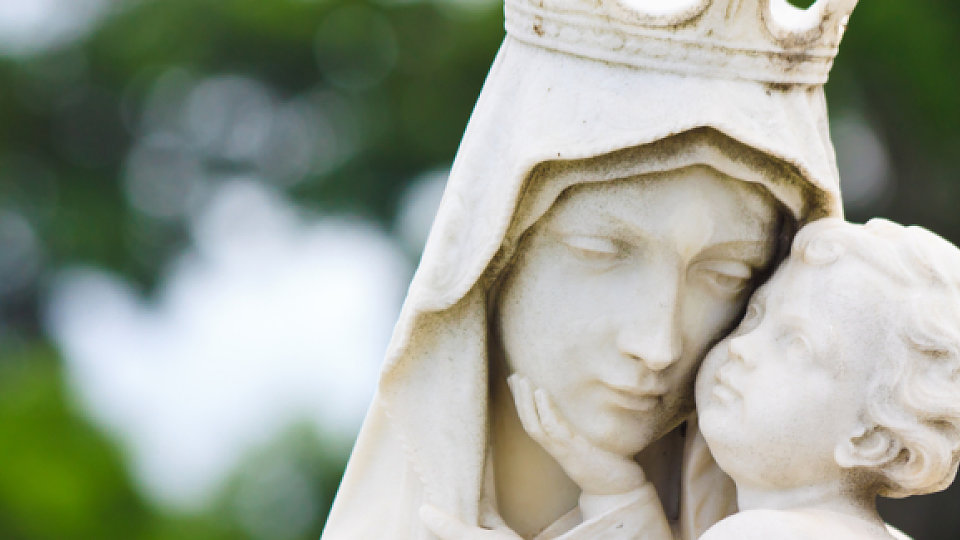Mary, Full of Grace

My new Advent book, Not a Silent Night, looks at Jesus through the eyes of Mary. Chapter one begins at the end of Mary’s life and each successive chapter goes back in time in Mary’s life. The excerpt from the book below is from the fourth chapter, and it takes the reader before the birth of Jesus and looks at the Annunciation. The book ends at chapter five with the birth of Jesus. I’ll publish an excerpt from that chapter next week. Mary is thirteen or fourteen years old, and she’s living in her hometown, the tiny village of Nazareth. Nazareth was so insignificant that it didn’t even show up on first-century maps. In that village, Mary was on the lowest rung of Jewish society. She was a peasant girl, not a citizen of Rome, not of any importance in and among her own people. It was to this girl that the angel Gabriel appeared, announcing that she would give birth to the long-awaited messianic king. We call this event the Annunciation. It’s a great story, not only for what it tells us about Mary, but for what it teaches us about God and God’s ways. Gabriel didn’t explain God’s choice, but Mary interpreted God’s actions for us in the words of praise that she sang shortly after discovering she was pregnant. It happened when Mary went to stay with her older cousin Elizabeth for the first three months of her pregnancy. Immediately upon seeing her, Elizabeth felt her own baby, who would become known as John the Baptist, leap in her womb. Elizabeth said to Mary, that she se was “full of grace,” and “blessed among women” (Luke 1:42). Upon hearing Elizabeth’s words, Mary broke out in song, saying, “My soul magnifies the Lord, and my spirit rejoices in God my Savior, for he has looked with favor on the lowliness of his servant. . . . He has shown strength with his arm; he has scattered the proud in the thoughts of their hearts. He has brought down the powerful from their thrones, and lifted up the lowly; he has filled the hungry with good things, and sent the rich away empty.” (Luke 1:46-48, 51-53) Why did God choose Mary? Because God looks with favor on the lowly. He lifts them up, blessing the hungry while scattering the proud, bringing down the powerful and sending the rich away empty. Mary believed that God chose her precisely because she was not of noble birth. Her qualifications were that she was humble, she had a heart for God, and she would be willing to offer herself wholly to God. Consistently in scripture we find that God chooses the humble, the unlikely, and the lowly. God chose the elderly Abraham and Sarah to bring forth the chosen people. He chose Moses, a fugitive from the law, a man who stuttered and was tending sheep, to be the lawgiver and deliverer of Israel. He chose David, the shepherd boy, the youngest and scrawniest son of Jesse, to be Israel’s greatest king. He chose Esther to save the Israelites from destruction. And he chose Mary, a peasant girl in Nazareth, to bear the Messiah. The entire Christmas story is, in part, a story about the reversal of values in God’s kingdom. Mary, a peasant girl, was chosen to bear the King. Jesus was born in a stable because there was no room in the inn. The first people God invites to see the Christ are the night-shift shepherds. The story is, in part, a call for us to humble ourselves before God. It’s easy for pride to sneak into our lives, especially when we’re in places of privilege. We begin to think the world revolves around us and to treat others as though they’re beneath us. One of the things I’ve noticed is that you’re going to be humbled one way or another. You either humble yourself, or life, or sometimes God, will do it for you. How much better it is to humble yourself before God—to say, “God, please help me remember who I am and that my life is a gift and that anything good ultimately comes from you. Help me to live like that and to treat people well.” God chose Mary, a young girl from an insignificant part of the Roman Empire, to give birth to Jesus because that’s how God works. God opposes the proud and gives grace to the humble. Today’s post is an excerpt from Not a Silent Night.